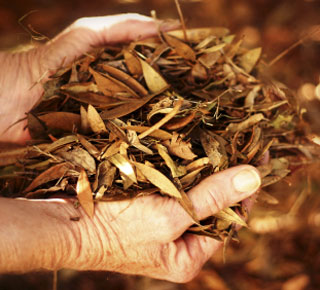
Organic amendments add nutrients that are available to plants, and can include nitrogen, phosphorous and potassium. Organic matter builds soil by: improving aeration of the soil, improving drainage in clay soil and water holding capacity in sandy soil. The organic matter attracts all types of living organisms that also build the soil.
In nature the leaf litter shed each fall, stays around plants, breaks down, and feeds the soil, which then feeds the plants. In the average yard the leaf litter is removed. The soil has nothing to build itself back up with. Yet the plants still require nutrients to aid their growth and assist them in managing environmental and human created stresses. Therefore the need for organic additives is very important. It can fill the void we have created. Organic additives are classified as any substance that come from the earth. Some of the common ones are: well-aged manure from cow, sheep, horse, pig and chicken. Compost and worm casings are other sources of organic matter. And last but not least fruit and vegetable waste from the kitchen that has been broken down in a compost pile or bin.
Synthetic fertilizers give flowering plants a short-lived boost but do not build the soil. For plants living in the earth, these applications of nitrogen – phosphorus – potassium are just not enough. Perennial plants require good soil to come back healthy year after year.